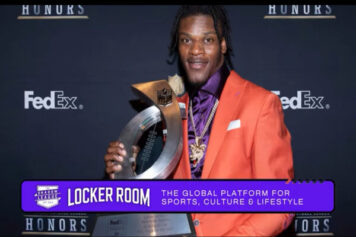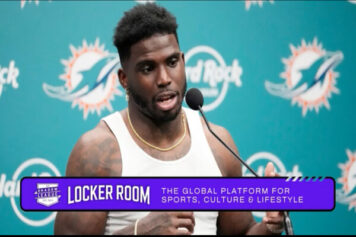Erika Alexander is a long-time vet of the industry and she’s got a lot to say about diversity in new media.
Erika Alexander, of “Living Single”, and “Black Lightning” fame, has been entertaining us for over 30 years. Having a successful career behind and in front of the camera, she’s one burning coal in an oven of opinion, thoughts, and facts.
And her genius was on display at Ensuring Diversity in the New Media Panel at the South By Southwest Festival (SXSW). Moderated by MMCA co-founder David Morgan, Alexander was representing her new media company, Color Farm Media. Other panelists included award-winning journalist, CNN contributor and author of “I Am Jackie Chan: My Life in Action” Jeff Yang, and Gabriela Lugo of Revek Entertainment.
The discussion centered around the problems of inclusion, limited perspectives and normalized racist troupes and stereotypes, among other topics.
The NAACP Image Award-nominated actress has tentacles in several mediums, from comic books to film, producing and directing.
Here’s what she had to say when asked how new media has allowed for greater diversity.
“I’ve been working in media for 36 years now. I’ve seen the change from film to video to all that’s going on right now. I’ve seen the change from not only new talent, but talent blocks, new ways to shoot, stream and stuff like that. Internet, and all these things that didn’t exist. Some would say ‘Now, look at all the things you can do.’ Back in the day, you were lucky if you had a little money, you could have a video camera. Suddenly, you were able to do some stuff, but some of it looked ugly. Then, all of a sudden, you could compete with the big boys.”
https://www.youtube.com/watch?v=8mQ3gRpoR_A
“Part of my proposition, to answer that question, is to say that media has changed because it gave power to the people. Suddenly you really can take a camera and make “Tangerine”. So, that is a power. I would say that we all have a media problem within the emergence of a revolution inside of how we all see ourselves in media because anybody can be a star, and yet, there’s more people who don’t have the skill set.”
Yet, despite that paradigm in which the smaller media entities can play with the big boys, a system that centers mainstream sensibilities will resist change almost instinctively. Here’s more from Alexander. She uses what happened to Oscar-winning actress and comedian Monique to hammer home a very succinct point.
“I always like to say part of what we’re going through is what Monique talks about. People talk about who they’re muting, we need to un-mute Monique. Monique is a Lilly Ledbetter of her time. If you look at what she’s talking about, what she says, whether you agree with her or not, doesn’t matter.”
“The facts, known to her, are that she was in a movie, and they wanted her to do an Oscar campaign. But they didn’t give her a proper way to make a living doing that Oscar campaign.”
“Although, if you look at the movie, it was a very small independent film. You get scale, and everybody knows that’s a very low payment. They shot that in no less than four weeks. And suddenly she was on an Oscar campaign that would probably take most of her year, and she had just had twins. She needed a way to make a living, and they said they did not want to do that. They said that she was difficult.”
“Then suddenly everybody had an opinion. Ok, she wanted us to boycott Netflix to get her money, but let’s just look at that.”
“The people who came out a little later, Viola Davis and Octavia Spencer, who according to Jessica Chastain, who linked money positions with Octavia to get her, for the first time in her life, a decent paycheck. This is after this woman had been nominated for three Oscars and won one. You tell me if there’s not a media problem?”
“If there’s an economic problem, there’s always going to be disparities. Unfortunately, that goes to all of the most marginalized communities. That does not mean just black women, that means Latinos, that means women, they mean Asians, that means disabled, that means elderly, that means different perspectives. Different perspectives from within the white community. Trans and all of that. So, yes, we do have an issue, but we’ve never had more power than we do right now.”



